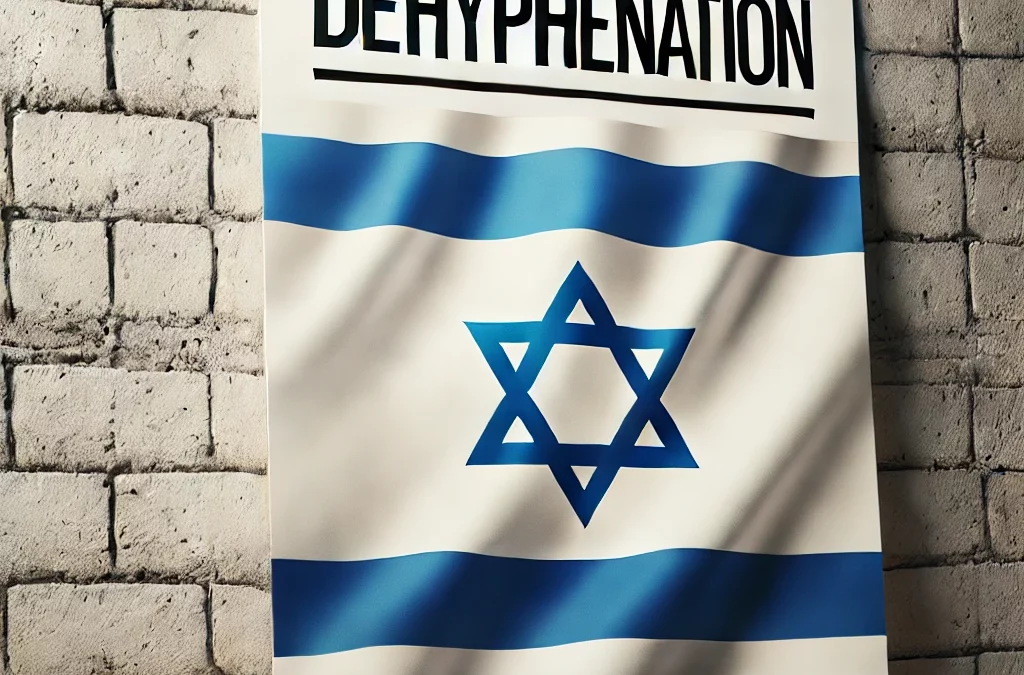In an increasingly interconnected world, foreign policy is more complex than ever. The concept of “dehyphenation” offers a pragmatic approach, allowing nations to forge independent relationships based on their own strategic interests. But can this approach work for South Africa in its relations with Israel and Palestine? This blog post explores the concept of dehyphenation, its benefits, and its potential application in South Africa’s foreign policy.
What is Dehyphenation?
- Dehyphenation is a foreign policy approach that allows a country to manage relationships with different regions or nations independently, rather than grouping similar countries together or letting third-party conflicts influence these relationships.
- In simpler terms, it means maintaining independent relationships with particular countries based on their individual strategic merits, even if there are tensions or conflicts between these countries.
- This approach enables countries to maintain relationships without fear of retaliation or reprisals from other nations.
Why is Dehyphenation Important in Foreign Policy?
- It allows countries to be more pragmatic and pursue their own financial or security interests without being constrained by third-party conflicts.
- Dehyphenation represents a “both/and” rather than an “either/or” approach to foreign policy, prioritising a country’s own interests.
Can South Africa Pursue a Policy of Dehyphenation Towards Israel and the Palestinian Territories?
- The South African Zionist Federation believes this is precisely what South Africa should do.
What are the Benefits of Dehyphenation?
- It allows a country’s economic and strategic interests to guide foreign policy, rather than being driven purely by ideology or the interests of third parties.
- It can lead to more balanced and beneficial international relationships.
Which Countries Have Pursued Dehyphenation?
- India: Maintains strong ties with Israel, benefiting from its defence, technological, and agricultural expertise, while also supporting Palestinian statehood and providing aid to Palestinians.
- United States: Maintains a dehyphenated policy towards China and Taiwan. The US is China’s largest export market while also supporting Taiwan’s military due to perceived threats from China.
- Gulf States: Some have established full diplomatic relations with Israel through the Abraham Accords (e.g., United Arab Emirates and Bahrain) without breaking ties with Palestine.
Why Should South Africa Consider Such a Policy?
- South Africa’s current stance on the Israel-Palestinian conflict is potentially damaging to its economy and creating tensions with major trading partners in Europe and North America.
- South African citizens could benefit from Israel’s world-leading technological innovations in areas such as water management, solar energy, healthcare, IT, and agriculture.
- Recent US legislative actions (e.g., the House of Representatives bill passed on 14 June) suggest that South Africa’s current foreign policy could jeopardise trade deals and duty-free access for South African exporters.
- Global attitudes towards Israel are shifting, as evidenced by the Abraham Accords, recognising both Israel’s right to exist and the potential economic and security benefits of closer relations.
How Could Dehyphenation Work for South Africa?
- It would allow South African citizens to access Israel’s expertise in crucial areas like water management, renewable energy, healthcare, IT, and agriculture.
- Multiple political parties across the spectrum (including the IFP, MK, EFF, DA, ACDP, and Patriotic Alliance) could support renewed relations with Israel.
- South Africa could maintain its diplomatic relations with the Palestinian Authority while also engaging with Israel.


